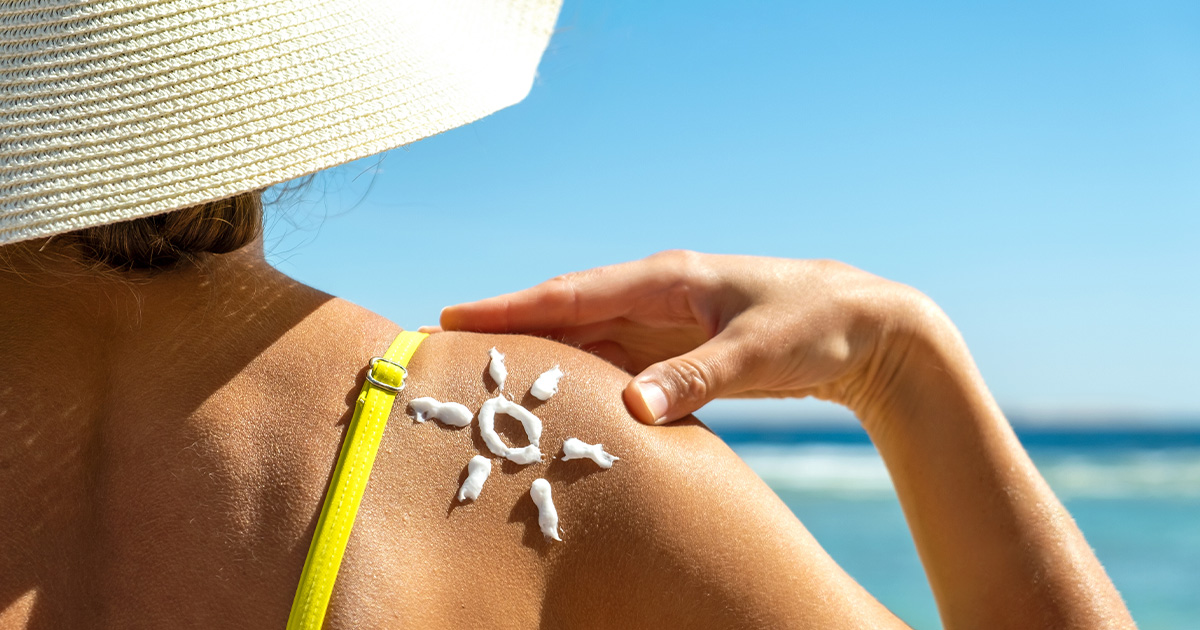Skin cancer prevention tips during Skin Cancer Awareness Month.
Did you know? According to the Skin Cancer Foundation, one in five Americans will develop skin cancer by the age of 70. In addition, more people are diagnosed with skin cancer each year in the U.S. than all other cancers combined. Knowing these facts, it's critical to keep prevention and protection top of mind, especially as we venture into Michigan's warmer months when sun exposure for many is at its peak.
The good news? For as common as it is, skin cancer is highly preventable—and it's never too late to start protecting yourself. Below are the Skin Cancer Foundation's top tips for reducing your skin cancer risk:
Seek the shade, especially between 10 a.m. and 4 p.m., when the sun is strongest. An extra rule of thumb is the "shadow rule." If your shadow is shorter than you are, the sun's harmful UV radiation is stronger; if your shadow is longer, UV radiation is less intense.
Do not burn. A person's risk for melanoma, the deadliest form of skin cancer, doubles if they've had five or more sunburns at any point in life.
Avoid tanning and UV tanning booths. UV radiation from tanning machines is known to cause cancer in humans. Indoor UV tanners are 74% more likely to develop melanoma, one of the deadliest forms of skin cancer, than those who've never tanned indoors. Tanning bed users are also 1.5 times more likely to develop basal cell carcinoma and 2.5 times more likely to develop squamous cell carcinoma, two of the most common forms of skin cancer. The more time a person has spent tanning indoors, the higher the risk.
Cover up with clothing, including a broad-brimmed hat and UV-blocking sunglasses. Clothing can be your most effective form of sun protection, so make the most of it with densely woven and bright- or dark-colored fabrics, which offer the best defense. The more skin you cover, the better, so choose long sleeves and long pants whenever possible.
Use a broad-spectrum (UVA/UVB) sunscreen with an SPF of 15 or higher every day. For extended outdoor activity, use a water-resistant, broad-spectrum (UVA/UVB) sunscreen with an SPF of 30 or higher.
Apply 1 ounce (2 tablespoons) of sunscreen to your entire body 30 minutes before going outside. Reapply every two hours or immediately after swimming or excessive sweating. One eight-ounce bottle of sunscreen should provide two full days of sun protection.
Keep newborns out of the sun. Sunscreens may be used on babies over the age of six months, but they should also be protected by shade and clothing. Children are very sensitive to UV radiation—just one severe sunburn in childhood doubles the chances of developing melanoma later in life.
Examine your skin head to toe every month. While self-exams shouldn't replace the important annual skin exam performed by a physician, they offer the best chance of detecting the early warning signs of skin cancer. If you notice any change in an existing mole or discover any new spot that doesn't heal after several weeks, see a physician immediately.
See your physician every year for a professional skin exam. Just like you would with other aspects of your health, it's important to address your skin regularly and prioritize getting an annual skin exam.
Courtesy of West Michigan Woman.




